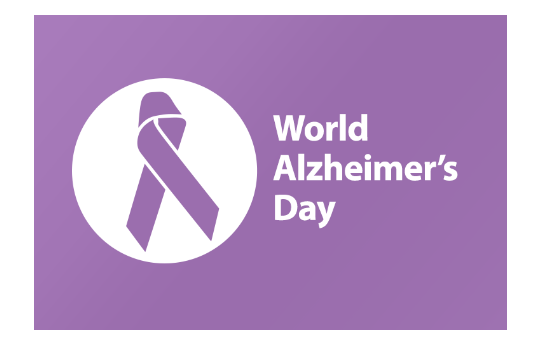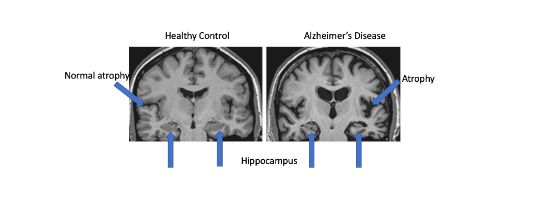By: Geraldus Sigap
September 21, 2024, marks World Alzheimer’s Day, an annual campaign to raise awareness about Alzheimer’s disease and dementia. Alzheimer’s, a progressive neurodegenerative disease, is the most common cause of dementia worldwide, affecting millions of people and their families. On this day, organizations, healthcare professionals, and communities come together to promote understanding, share resources, and advocate for better care and research to find a cure.

Figure 1. World Alzheimer’s Day
Early symptoms of Alzheimer’s often include mild memory loss, confusion, and difficulty with daily tasks. As the disease progresses, individuals may experience severe memory impairment, disorientation, changes in behavior, and an inability to carry out the simplest of tasks. In its later stages, Alzheimer’s can result in complete dependence on caregivers, impacting not just the patient but their families and communities as well.
According to the World Health Organization (WHO), more than 55 million people worldwide live with dementia, and Alzheimer’s disease accounts for 60-70% of these cases. The numbers are staggering and are expected to increase as the global population ages. Without a cure or effective treatment to halt its progression, the number of people with Alzheimer’s could double every 20 years, particularly in low- and middle-income countries, where awareness and healthcare resources may be limited.
The economic impact of Alzheimer’s is equally profound, with billions spent on healthcare costs and lost productivity due to caregiving demands. For families, the emotional toll can be overwhelming, as they watch their loved ones struggle with the loss of identity and independence.
World Alzheimer’s Day 2024 is not just about acknowledging the challenges of Alzheimer’s; it is about fostering hope through increased awareness, research, and support. This year’s theme, “Know Dementia, Know Alzheimer’s”, focuses on early diagnosis and intervention. By recognizing the early signs of Alzheimer’s, individuals and families can seek medical advice sooner, allowing for better planning, management, and access to support services.
One key aspect of early diagnosis is overcoming the stigma associated with Alzheimer’s and dementia. Many people, particularly in developing countries, delay seeking help due to fear or misunderstanding of the condition. Public health campaigns on World Alzheimer’s Day aim to dismantle these barriers, encourage open conversations, and provide clear information on where to seek help.
Early diagnosis is crucial in managing Alzheimer’s disease. While there is no cure, early intervention allows for the use of medications that may temporarily improve symptoms or slow disease progression. Early diagnosis also provides an opportunity for patients and their families to make important decisions about the future, including legal, financial, and care arrangements.
Various diagnostic tools are used to detect Alzheimer’s, including cognitive tests, neuroimaging (such as MRI or PET scans), and blood tests to identify biomarkers. However, one of the most promising areas of Alzheimer’s research is the development of blood tests that can detect the disease years before symptoms appear. These tests could revolutionize how Alzheimer’s is diagnosed and treated in the future, potentially leading to earlier and more effective interventions.

Figure 2. Healthy and Alzheimer’s MRI Brain Scan
Research into the causes and treatment of Alzheimer’s has made significant strides in recent years. Scientists are exploring a range of therapeutic approaches, from targeting the amyloid plaques and tau tangles in the brain to investigating the role of inflammation and vascular factors in the disease’s development.
One of the most exciting advancements is the development of disease-modifying treatments. In 2021, the FDA approved the first drug, aducanumab, that targets amyloid plaques in the brain, though its approval has been met with controversy due to mixed results in clinical trials. Other drugs in the pipeline aim to slow the progression of Alzheimer’s, offering hope to patients and their families.
In addition to drug treatments, lifestyle interventions are being studied for their potential to reduce the risk of Alzheimer’s. Regular physical activity, a healthy diet, cognitive training, and social engagement have all been linked to a lower risk of developing Alzheimer’s and other dementias. While these measures are not a cure, they can contribute to overall brain health and may delay the onset of symptoms.
Caring for someone with Alzheimer’s can be an emotionally and physically demanding task. Support for caregivers is essential in managing the disease’s impact. Many organizations offer resources, counseling, and respite care services to help caregivers navigate the challenges of Alzheimer’s. On World Alzheimer’s Day, these organizations aim to highlight the importance of caregiver well-being and the need for more comprehensive support systems.
In Indonesia, where Alzheimer’s cases are rising due to an aging population, awareness campaigns and healthcare services are crucial in addressing the growing burden of dementia. While the country has made progress in raising awareness about Alzheimer’s, there is still a long way to go in providing accessible care and support for those affected.
At RS Abdi Waluyo, we recognize the importance of specialized care for patients with Alzheimer’s and other forms of dementia. Our neurologist department offers comprehensive diagnostic and treatment services tailored to the needs of elderly patients. Our team of experienced specialists is dedicated to providing personalized care that focuses on improving quality of life, managing symptoms, and supporting both patients and their families.
One of the key services we offer is cognitive testing and memory assessment, which are essential in diagnosing Alzheimer’s in its early stages. We also provide advanced imaging services, including MRI and PET scans, to help detect brain changes associated with Alzheimer’s. For patients with more advanced stages of dementia, we offer long-term care and support, ensuring that they receive compassionate and expert care throughout the progression of their illness.
Resources
- World Alzheimer’s Day is September 21st | America’s Charities [Homepage on the Internet]. [cited 2024 Sep 26];Available from: https://www.charities.org/news/world-alzheimers-day-september-21st/
- MRI Scan of Brain – Alzheimer’s disease – Dementia Services Information and Development Centre [Homepage on the Internet]. [cited 2024 Sep 26];Available from: https://dementia.ie/lessons/mri-scan-of-brain-alzheimers-disease/
- Alzheimer’s Disease Fact Sheet [Homepage on the Internet]. Natl. Inst. Aging. 2023 [cited 2024 Sep 26];Available from: https://www.nia.nih.gov/health/alzheimers-and-dementia/alzheimers-disease-fact-sheet
